The calm before summer movie season usually delivers some of the year’s most interesting movies––artistic gambles to try reaching audiences before blockbusters take over the multiplexes––and this April is no different. From some of the best films we saw on the festival circuit last year to a few promising 2023 premieres, we’ve rounded up 15 films worth seeking out in what amounts to a major month.
15. AIR (Ben Affleck; April 5)
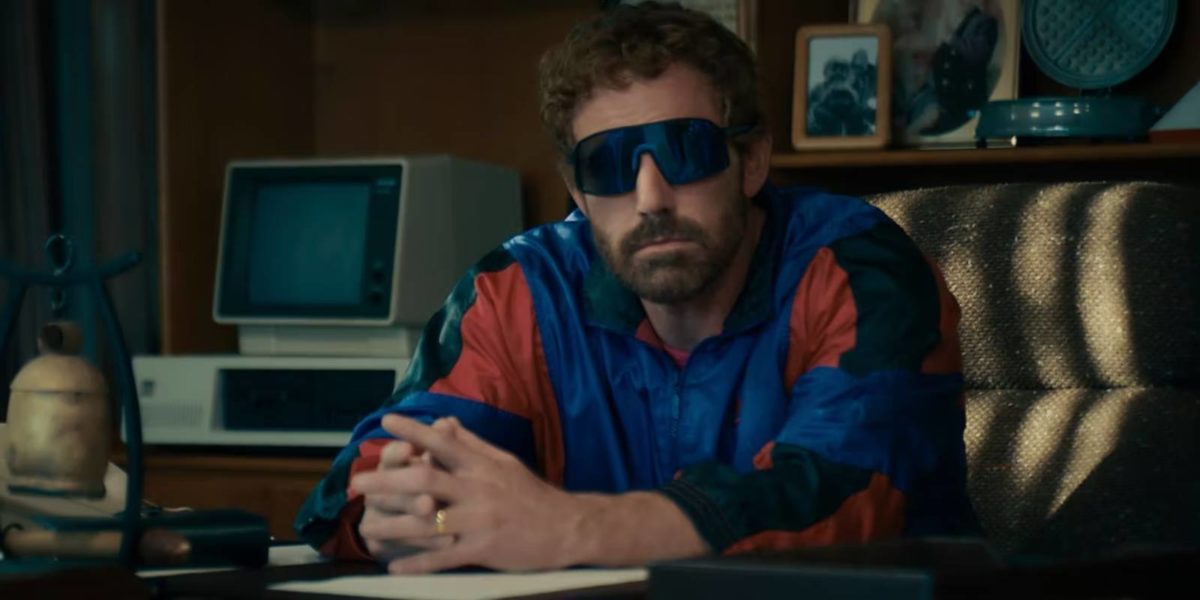
Returning to the director’s chair for the first time in seven years, following 2016’s Live by Night, Ben Affleck’s latest feature is immersed in the world of sports marketing. AIR, from a Black List script by Alex Convery, follows the real-life story of Nike’s quest in signing Michael Jordan. Led by Matt Damon as Sonny Vaccaro, who would go on to sign the greatest athlete of all time, the film is a fairly rousing crowd-pleaser that explores the many facets of commercialization of the era leading up to this major deal. With its relatively small scale and minimum locations, Affleck hits nearly all the right notes of an entertaining script. Check out our full review here.
14. Sick of Myself (Kristoffer Borgli; April 12)
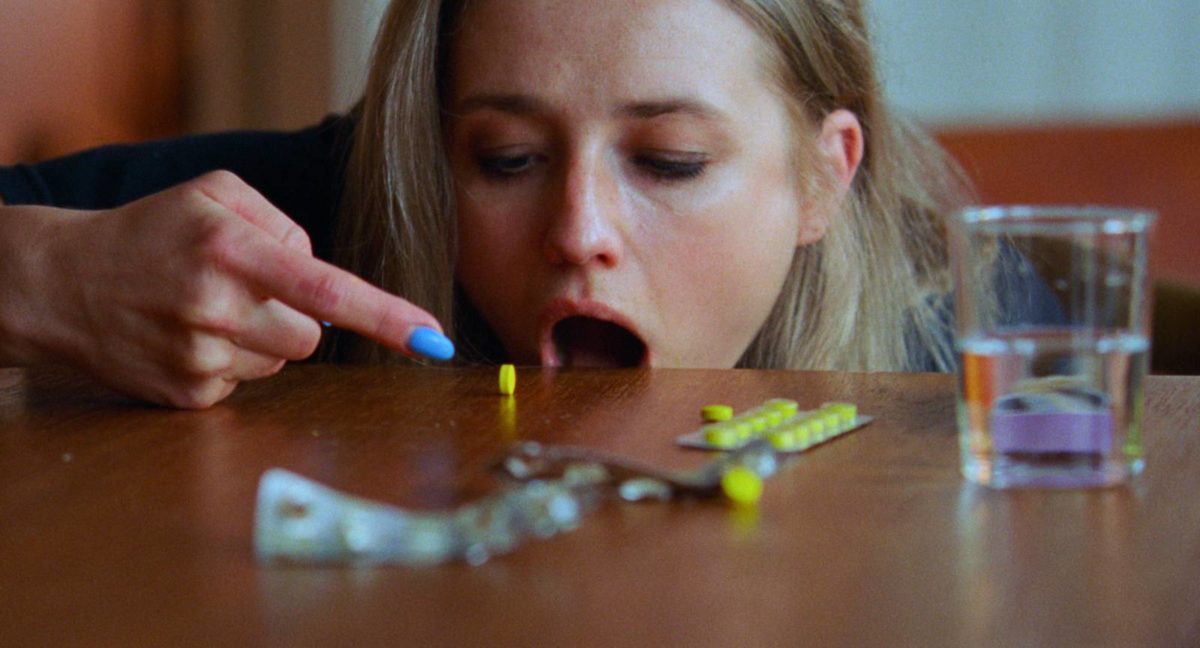
Hailing from Norway and, indeed, from the producers of the last major film from that country, The Worst Person in the World, Kristoffer Borgli’s pitch-black comedy Sick of Myself was a highlight at Cannes last summer. Following Signe (Kristine Kujath Thorp) as she enters a competitive path of fame when her significant other Thomas (Eirik Sæther) finds attention in the art world, Borgli takes a rather unflinching vision of the definition of beauty and the lengths to feel accepted. You can also count Ari Aster, whose latest film arrives the same week, as a major fan. “The work of a demonic parodist with chutzpah and judgement to spare,” he said. “As misanthropic and committed to its soul-sick worldview as any black comedy. Grotesque, deeply mean-spirited, and heroically unwilling to waver from the joke.”
13. Personality Crisis: One Night Only (Martin Scorsese and David Tedeschi; April 14)
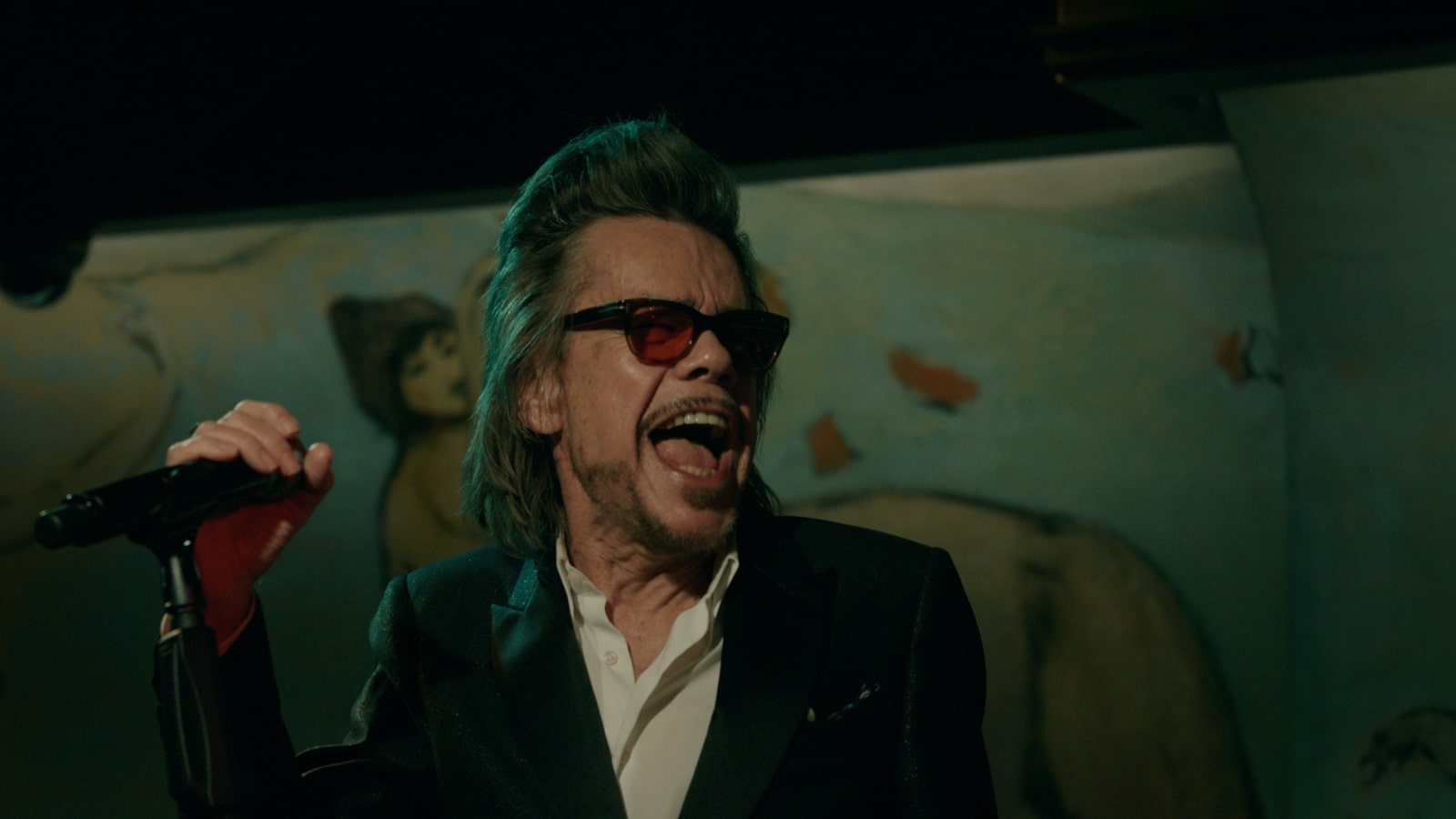
Six months before Martin Scorsese’s highly anticipated western arrives, we have his first new feature of the year: Personality Crisis: One Night Only. This intimate concert documentary featuring New York Dolls frontman David Johansen, co-directed with David Tedeschi, captures a cabaret performance filmed in January 2020 at New York City’s storied Café Carlyle and premiered at the 60th New York Film Festival. As Michael Frank said in his NYFF review, “Now, some 50 years later, Johansen is still performing. Scorsese and Tedeschi allow him the space to sing full songs. It’s not a concert doc, but becomes one; Johansen’s set often goes uninterrupted for 5-7 minutes at a time. He’s a riveting entertainer, hilarious and personal, still able to put on a show. At 127 minutes, Personality Crisis needs his jolts of life, his moments of pure talent, faltering when it becomes the dedicated ode to a band that some of the audience simply won’t know.”
12. Dry Ground Burning (Joana Pimenta and Adirley Queirós; April 21)
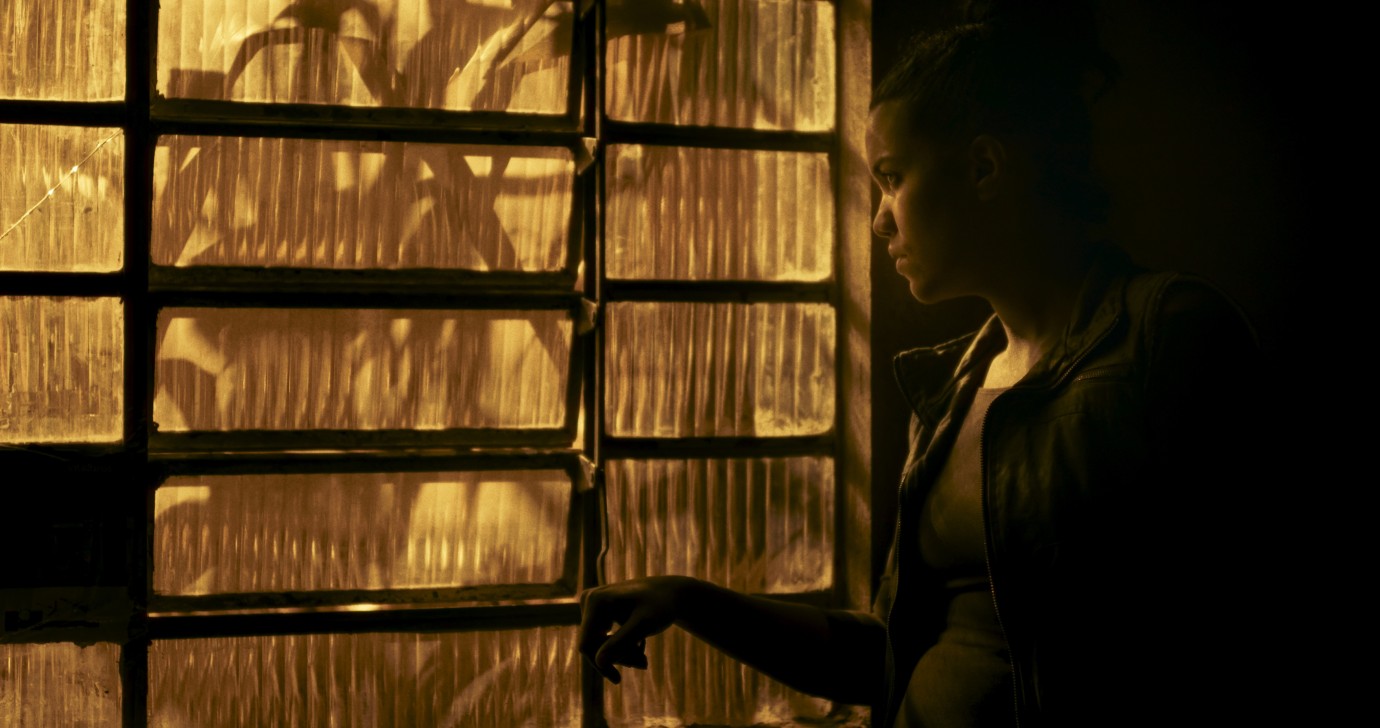
A highlight from last year’s Berlinale, TIFF, and NYFF will arrive this month. Leonardo Goi said in his review, “Joana Pimenta and Adirley Queirós’ explosive Dry Ground Burning is a portrait of one such places, Ceilândia, and an engrossing homage to a handful of people stranded in its crime-ridden slum of Sol Nascente: a vast canvas, in turns wistful and furious, of what life in Bolsonaro’s Brazil amounts to for those living on the periphery of the periphery. Few titles unveiled at this year’s Berlinale— where Dry Ground Burning screened in the Forum section—will register quite as timely; fewer still manage to deal with topics this sensitive without feeling exploitative. A paean to the marginalized that refuses to treat them as victims and instead grants them agency and dignity, this is an unsettling docu-fiction hybrid, a moving and invigorating watch.”
11. The Eight Mountains (Felix van Groeningen and Charlotte Vandermeersch; April 28)
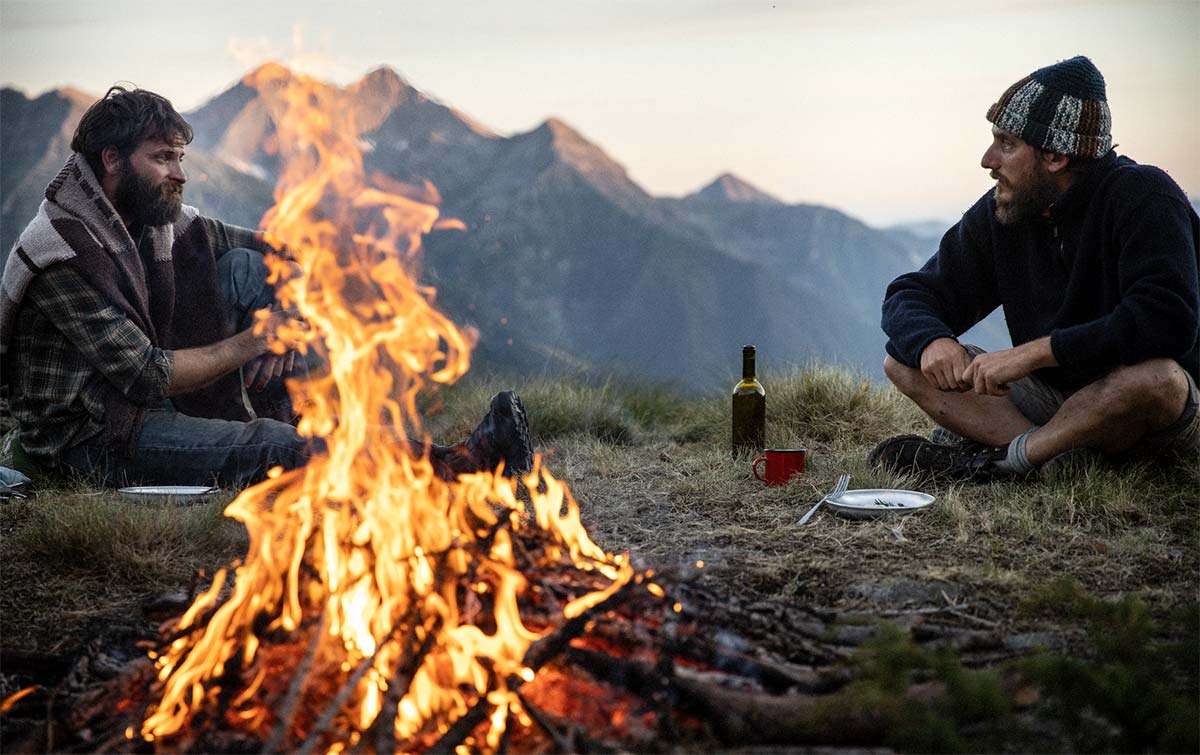
After dabbling in the Hollywood drama with Beautiful Boy, Felix van Groeningen is back, reteaming with frequent collaborator and partner Charlotte Vandermeersch for her co-directorial debut. The Eight Mountains tells the story of estranged childhood friends who reconnect to fulfill the wishes of a recently deceased relative. Conveyed with an epic reverence for the beauty of the world, it’s also remarkable just how intimately keyed-in the directors are to this bond tested by lost time and societal differences. While this journey is perhaps long in the tooth, the Cannes Jury Prize winner is certainly worth seeing on the largest screen possible.
10. Are You There God? It’s Me, Margaret (Kelly Fremon Craig; April 28)

After crafting not only one of the best coming-of-age films in recent years, but among the finest directorial debuts in recent memory, with The Edge of Seventeen, director Kelly Fremon Craig is back in similar territory, this time taking on a major adaptation. Reteaming with producer James L. Brooks, she has brought Judy Blume’s Are You There God? It’s Me, Margaret to screens. Starring Rachel McAdams, Abby Ryder Fortson, Elle Graham, Benny Safdie, and Kathy Bates, the trailer sells a similar level of humor and heartbreak as Craig’s debut, and we heard promising word from early screenings.
9. How to Blow Up a Pipeline (Daniel Goldhaber; April 7)
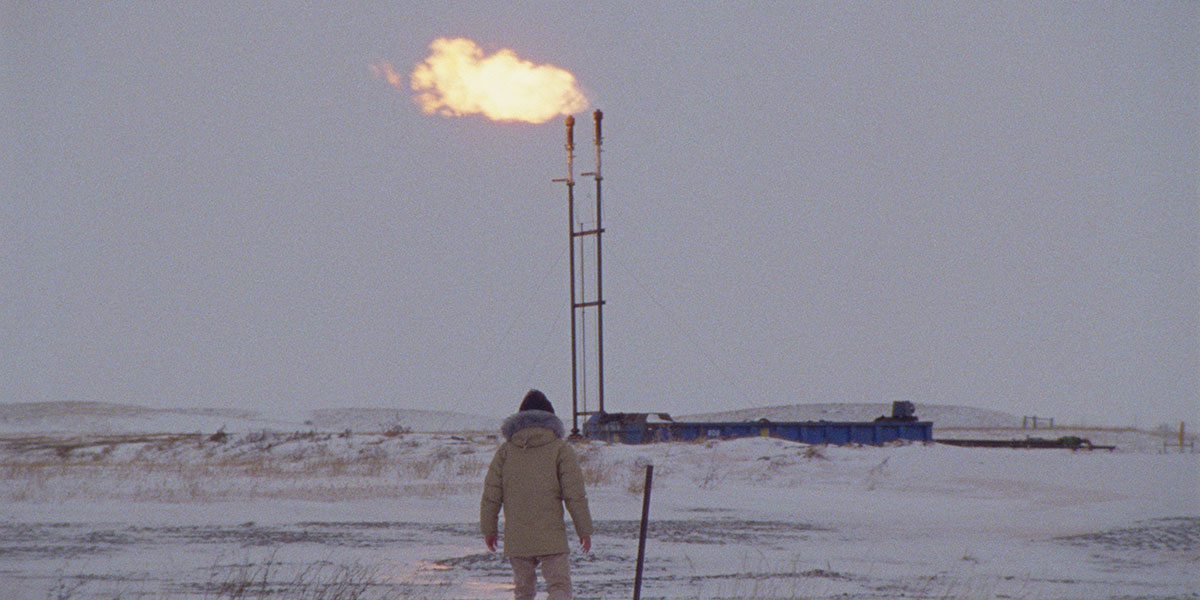
One of the highlights from TIFF, Daniel Goldhaber’s tense drama How to Blow Up a Pipeline––which follows a group of young environmental activists who execute a daring mission to sabotage an oil pipeline––is arriving soon. Jared Mobarak said in his review, “Logan (Lukas Gage) meets Shawn (Marcus Scribner) holding a red-covered book within a section of a bookstore both men are trolling for like-minded individuals. Our assumption is that the color means he’s leafing through Andreas Malm’s nonfiction How to Blow Up a Pipeline, in which the author argues for sabotage as a legitimate form of climate activism while also criticizing the pacifism and fatalism that has otherwise dominated the conversation instead. It makes sense, then, why Logan smirks before relaying how it “doesn’t actually explain how to build a bomb.” It doesn’t have to when there are numerous resources that already do—the stuff that will probably land you on an FBI watchlist. That’s not the point. The point is that those bombs should be built.”
8. Beau Is Afraid (Ari Aster; April 14)
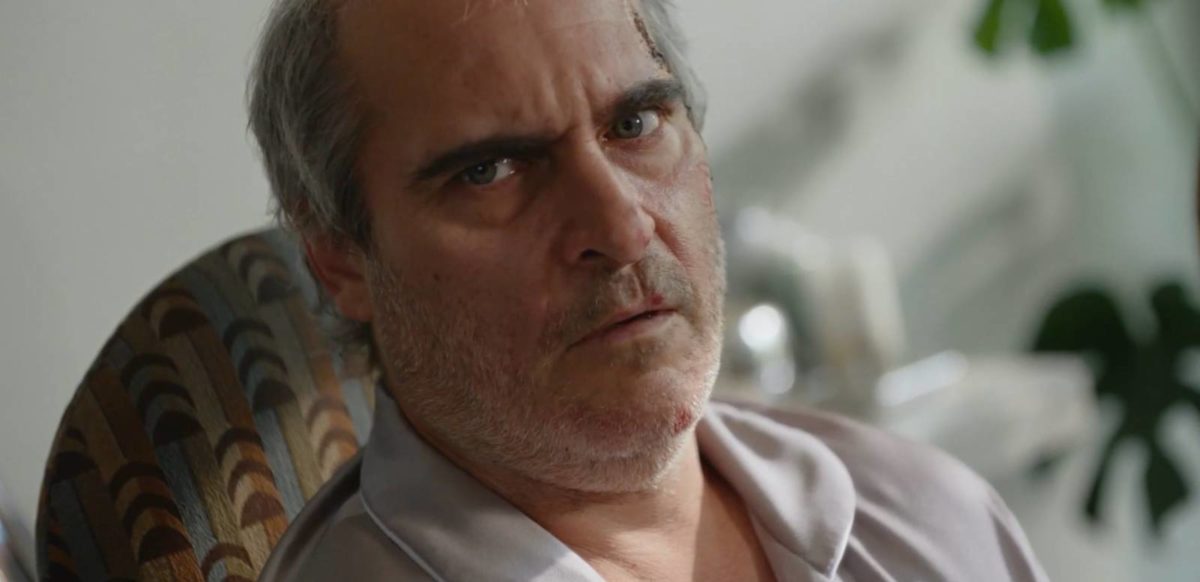
Although embargoed from full reviews until next week, Ari Aster’s brazenly original three-hour odyssey Beau Is Afraid is, refreshingly, the kind of film where it seems no notes were given––or at least the director had the creative control to reject them. Jumping from some of the most brilliant dark comedy in cinema as of late to a boldly conceived existential journey to an emotionally rife reckoning with mother issues, this Charlie Kaufman-esque journey of the mind packs in quite a lot. Even at its most unwieldy, Aster’s film is continued proof that Joaquin Phoenix––brilliant here, at the center of every scene––is the rare breed of actor seeking new challenges with each performance.
7. The Plains (David Easteal; April 12)

One of the only films we’ve given an A-grade in the last year, David Easteal’s three-hour debut The Plains has, at long lost, received distribution thanks to MUBI. Leonardo Goi said in his review, “It’s 5 p.m. and the day tumbles white with clouds. A car sneaks out of a parking lot and into traffic. The man at the wheel is alone. He turns off the radio and makes two phone calls: one to his old mother—’Hello Mutti, it’s Buschi’—and one to his wife. We listen to him chat as the outskirts of Melbourne flash by in a long caravan of office buildings and highway bridges. We sit behind him, in the car; all we see of his face is a slanted reflection in the rearview mirror. His name is Andrew (Andrew Rakowski), a lawyer pushing 60. For the past 13 years this has been his commute; for the next three hours The Plains keeps us in the backseat of his Hyundai as he drives home from work. This, in a nutshell, is all there is to David Easteal’s feature debut. It’s a montage of rides—eleven total—recorded over the course of a year, five of which Andrew shares with David (Easteal), a co-worker half his age, others he take alone. But this description hardly captures the startling emotional wallop The Plains packs throughout. For a film that seldom lets us step outside Andrew’s car, this is a most evocative, soul-replenishing journey; for one that just as rarely lets us look at its protagonist in the face, this is an astonishingly full-rounded, richly textured portrait of a life, epic in size and scope.”
6. Other People’s Children (Rebecca Zlotowski; April 21)
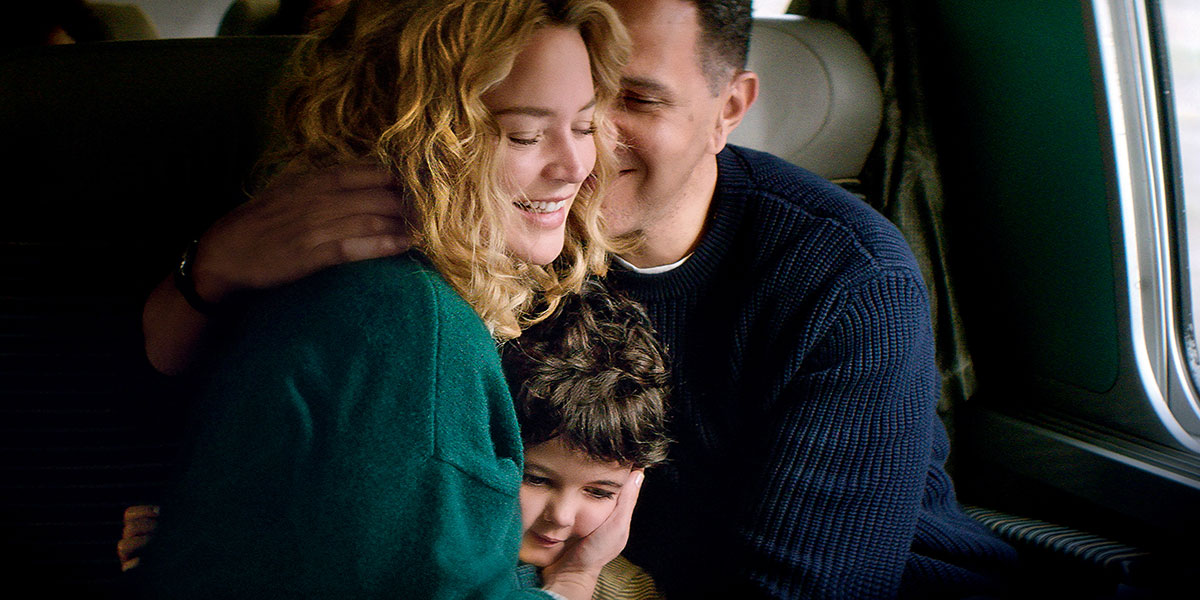
One of the most tender, accomplished films of the year is Rebecca Zlotowski’s French drama Other People’s Children. Featuring Virginie Efira’s best performance to date, accompanied by Roschdy Zem and a delightful cameo by Frederick Wiseman, the film charts a woman’s relationship with a man who has a young daughter. As Michael Frank said in his review, “Directed by Rebecca Zlotowski, the French drama Other People’s Children has a simple plot linked with complex ideas. Following Rachel (Virginie Efira), a 40-year-old childless, single teacher, the film watches her fall in love with Ali (Roschdy Zem), a man with a young daughter named Leila. Rachel, always wanting kids of her own, becomes connected to Leila, forcing her to confront her own views on motherhood. Zlotowski’s film grows into a study of overheard conversations and biting words from kids, those who don’t know any better.”
5. Trenque Lauquen (Laura Citarella; April 21)
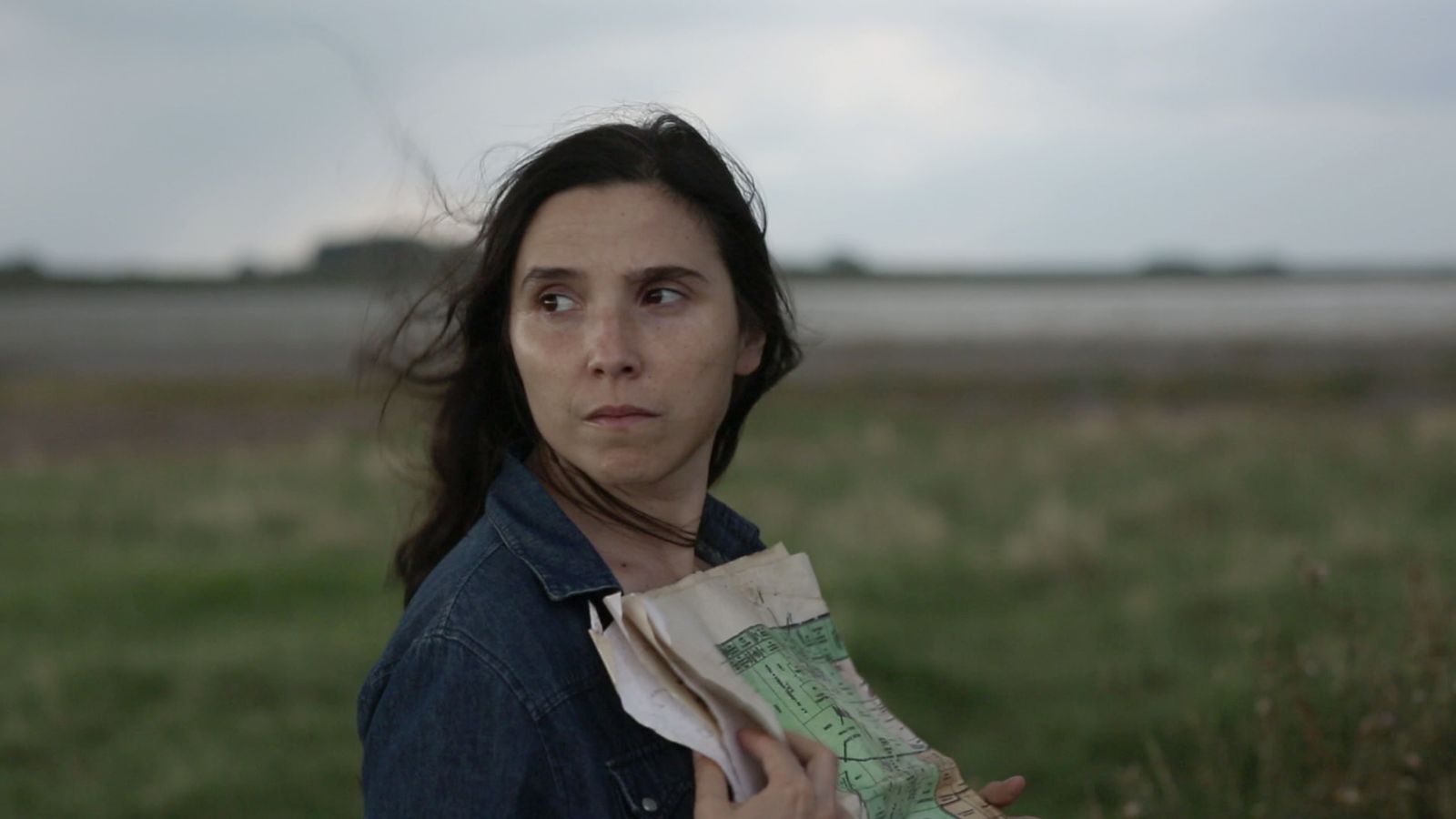
As a producer of Extraordinary Stories and La Flor, Laura Citarella is well-versed in telling tales on a large canvas. Her latest feature, the two-part, four-hour Trenque Lauquen, premiered on the fall circuit and is now arriving in theaters. Zhuo-Ning Su said in his review, “There are many films that start with a bang and many that climax at the end. There are fewer that wow with a deliberately calibrated, orgiastic halfway mark. This (among many other qualities) makes Argentinian director Laura Citarella’s beguiling, shape-shifting epic Trenque Lauquen something of a rarity. The first half of the 250-minute film (also screening in two parts at festivals, which is perfectly doable and would probably lead to a different viewing experience) concludes with a wordless scene of contemplation that abruptly cuts to a title sequence for the ages. This brutal transition comes as a surprise—not only because nothing in the two hours you’ve just spent has prepared you for the mean glare of strobe light and nasty electro beat accompanying the credits list. It also feels like a promise, a dare: ‘Think that’s enough weirdness for one movie? We’re just getting started.‘ However fatigued or perplexed one may be at this point, the sweet kick of adrenaline from this madly confident interlude will send pulses racing like the best of cinema does. But let’s start again from the top.”
4. Human Flowers of Flesh (Helena Wittmann; April 14)
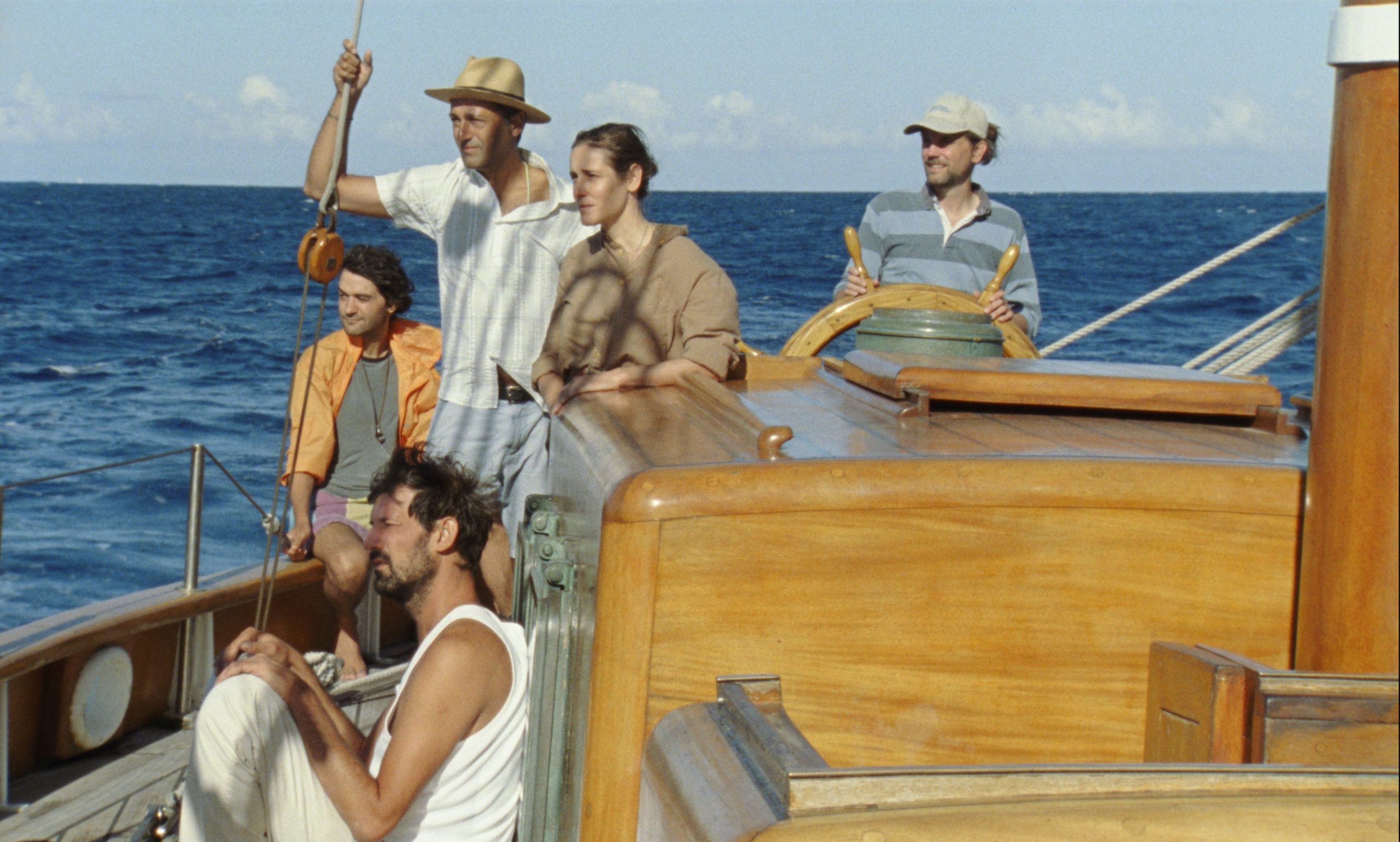
Following up her mesmerizing 2017 feature Drift, a formally audacious aquatic journey, German filmmaker Helena Wittmann returns with Human Flowers of Flesh, which proved a natural extension of her transportive cinematic interests in the sea while greatly expanding her canvas. Leonardo Goi said in his review, “Early into Helena Wittmann’s 2017 feature debut, Drift, a character recounts a Papua New Guinean tale of the world’s creation. Back when the planet was all water, a giant crocodile kept paddling around preventing the sand to settle; only after a warrior slaughtered the beast did the land jut into being. A few minutes into Human Flowers of the Flesh a sailor shares another legend, this one from Ancient Greece. As he chopped Medusa’s head, Perseus dropped it on the shore; the seaweed absorbed the Gorgon’s petrifying powers, and that’s how coral was born. Wittmann has a knack for myths, and her cinema radiates a certain mythical grandeur, a pleasure as primeval and untimely as the stories her projects orbit around. Flowers, in that, feels both ancient and novel. It’s a film whose visual experiments invite one to see the world anew, even as the demons that fuel it harken back to a passion for storytelling that’s as old as time itself.”
3. De Humani Corporis Fabrica (Verena Paravel and Lucien Castaing-Taylor; April 14)

A genuinely life-changing experience that I will never want to witness again, Leviathan directors Verena Paravel and Lucien Castaing-Taylor’s latest creation goes deep inside every crevice of the human body. Rory O’Connor said in his review, “A recent episode of Amazon’s The Boys showed a superhero shrink to the size of an uncooked grain of rice and walk into the shaft of his lover’s penis. The episode’s creators visualized this orifice as a dark cavern, all wet and leaky, but now we have the real thing—if still wet and leaky, now throbbing with awkward and unmistakable life. This astonishing image, one of many in De Humani Corporis Fabrica, is brought to us courtesy Verena Paravel and Lucien Castaing-Taylor, a filmmaking duet who, almost a decade on from their breakout masterpiece Leviathan, continue giving viewers new and vital ways of seeing the world.”
2. R.M.N. (Cristian Mungiu; April 28)
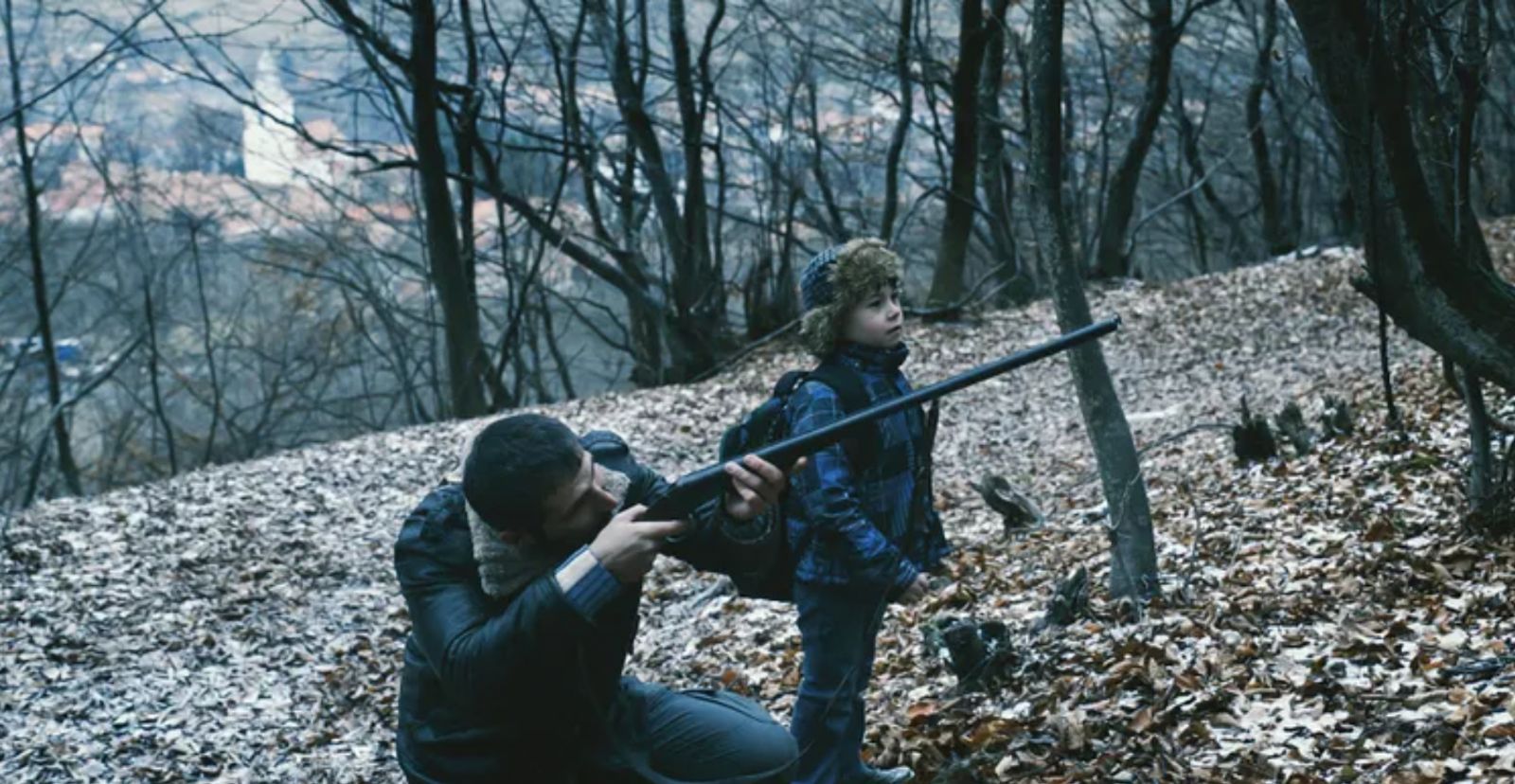
Returning with one of his finest films, Cristian Mungiu’s R.M.N. is an expertly constructed drama about the fissuring of the societal fabric of a small village. As Rory O’Connor said out of Cannes (where he also spoke with the director), “Mungiu has a knack for expressing major societal issues in subtle moments. Anyone who saw 4 Months, 3 Weeks and 2 Days will never forget the look on Otilia’s face as she sat at that dinner table, listening to innocuous chit-chat while her friend lay suffering in a seedy hotel room on the other side of town. R.M.N, a film that is more maximal by design, can’t boast that same sense of economy, yet its dizzying culmination of ideas proves more feature than bug.”
1. Showing Up (Kelly Reichardt; April 7)
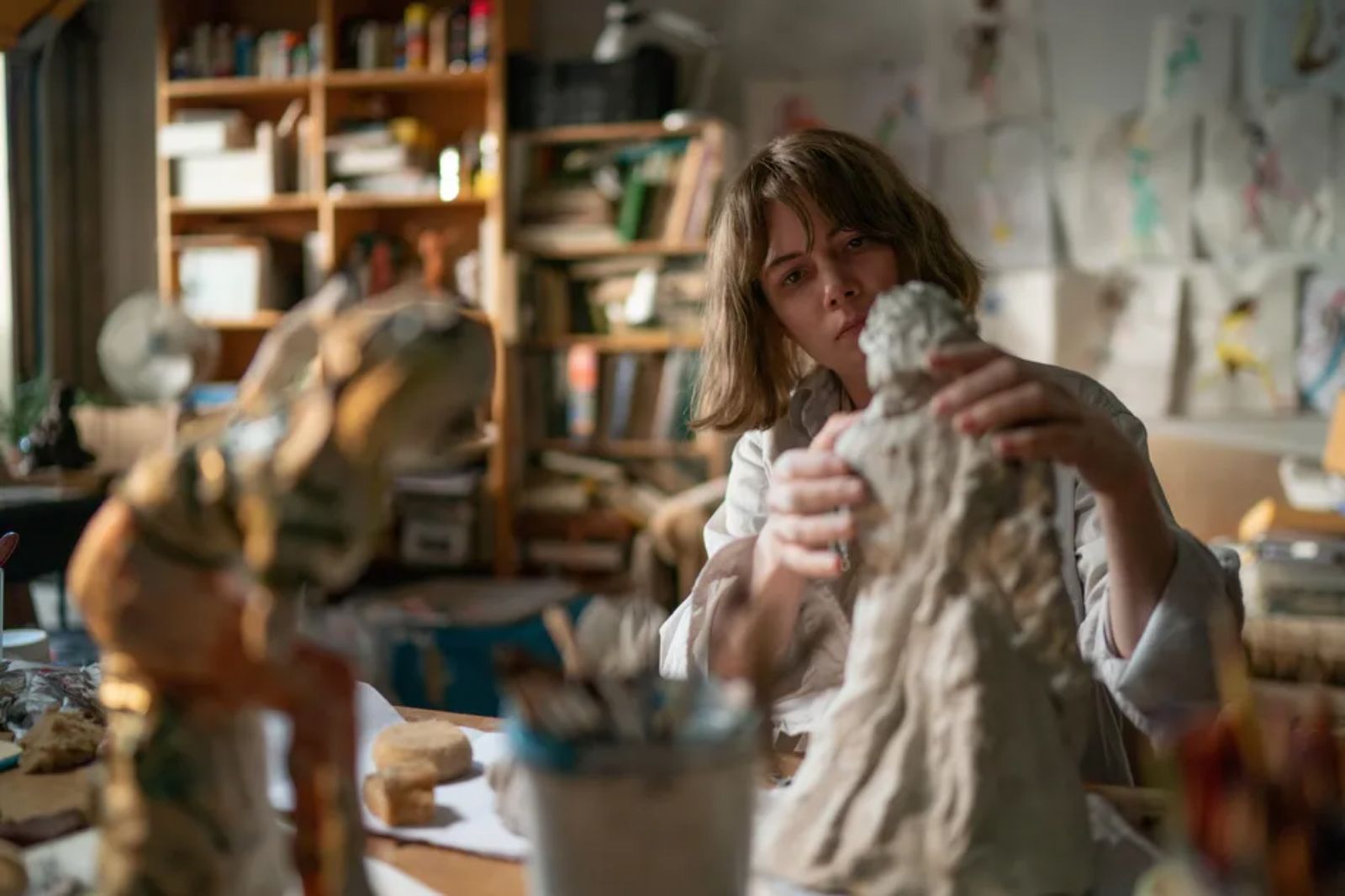
The best Michelle Williams performance of the past year was not, in fact, in a Steven Spielberg-directed motion picture, but from a reunion with her greatest collaborator, Kelly Reichardt. While Showing Up premiered at the Cannes Film Festival to, sadly, a somewhat tepid response, this stellar drama following the humdrum life of an artist got a warmer reception at NYFF and will now arrive this month. Rory O’Connor said in his review, “It isn’t just a story about midlife melancholy, though there’s plenty of that on offer. Told in Reichardt’s clear aesthetic language, Showing Up is reminiscent of Jim Jarmusch’s Paterson, another film drawing clean lines about the meditative joys of creating things; and just like Jarmusch’s bus-driving poet, the suggestion that Lizzie is especially talented at what she does or might ‘make it’ is not the ultimate aim. Reichardt is more interested in showing the measured flow of her creative process, the pace and intimacy of it, how it steadies her.”
As a side note: we should also mention Ryûsuke Hamaguchi’s 2008 feature Passion is finally getting a U.S. debut this month, technically qualifying it as a 2023 release.
More Films to See
- Pretty Baby: Brooke Shields (April 3)
- Country Gold (April 4)
- Joyland (April 7)
- Tommy Guns (April 12)
- Chop & Steele (April 13)
- A Life on the Farm (April 13)
- Blind Willow, Sleeping Woman (April 14)
- Everything Went Fine (April 14)
- Suzume (April 14)
- Wild Life (April 14)
- Carmen (April 21)
- Chevalier (April 21)
- Little Richard: I Am Everything (April 21)
- Plan 75 (April 21)
- To Catch a Killer (April 21)
- The Artifice Girl (April 27)
- 32 Sounds (April 28)
- Winter Boy (April 28)
